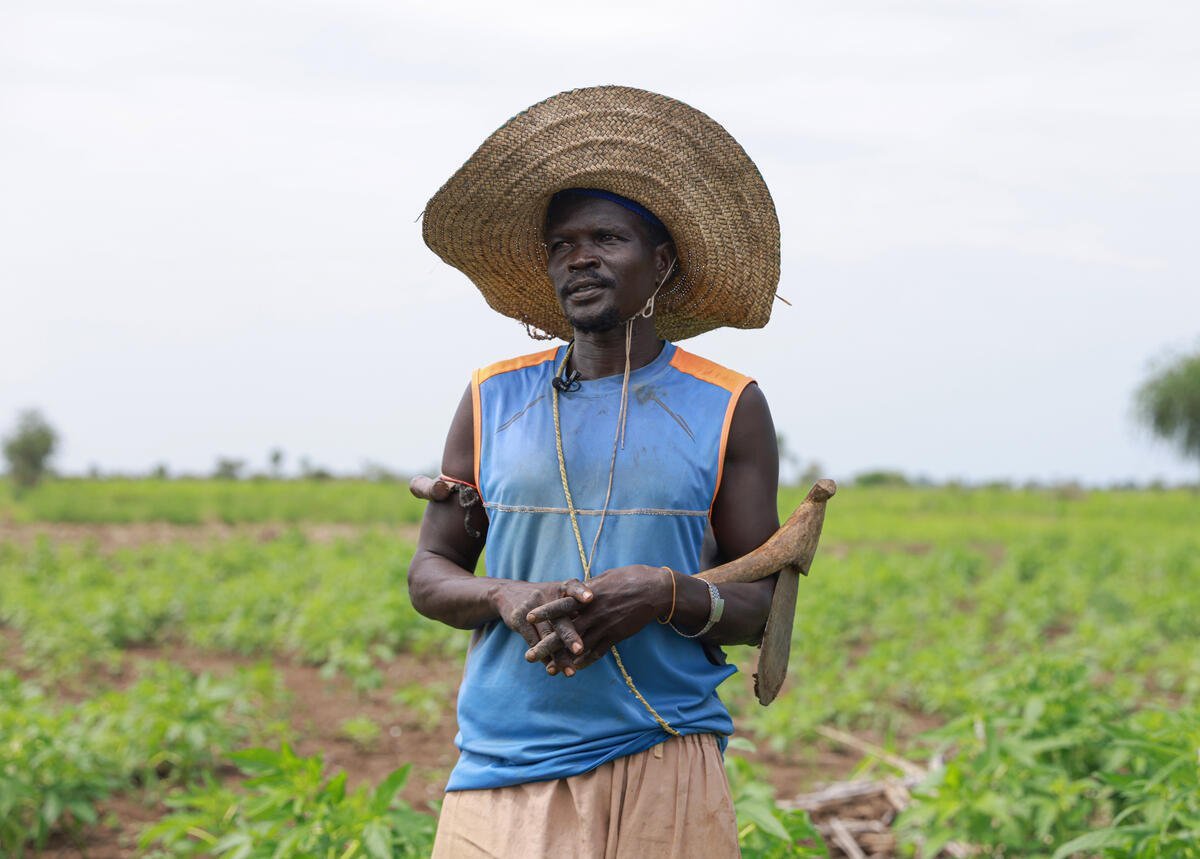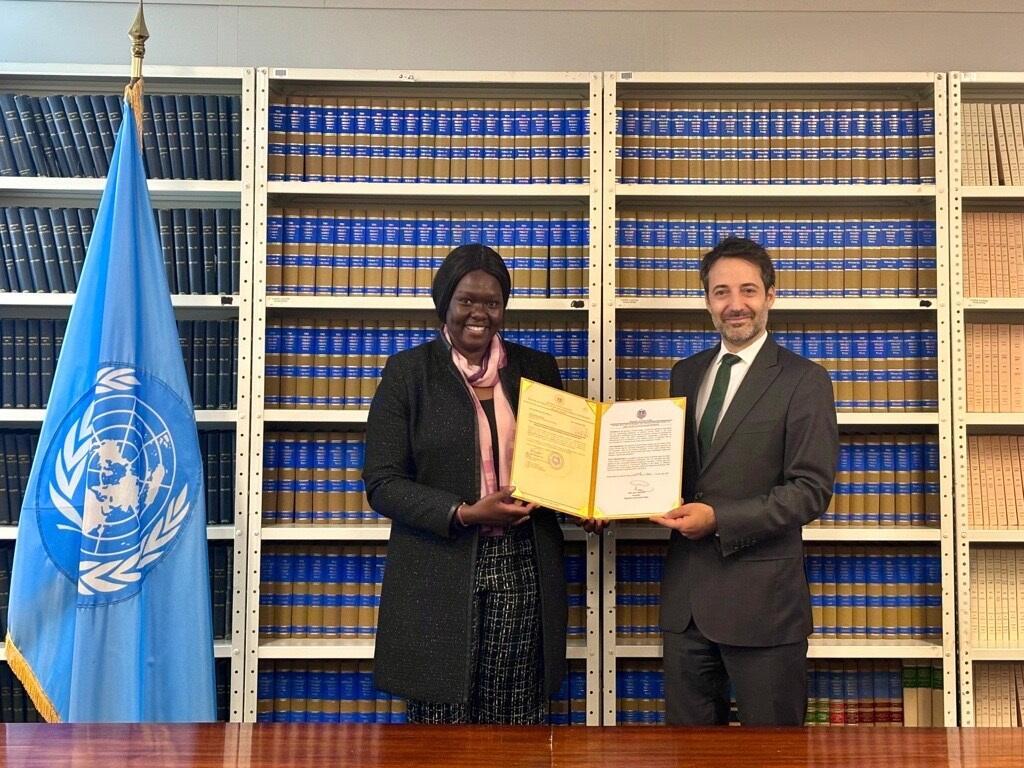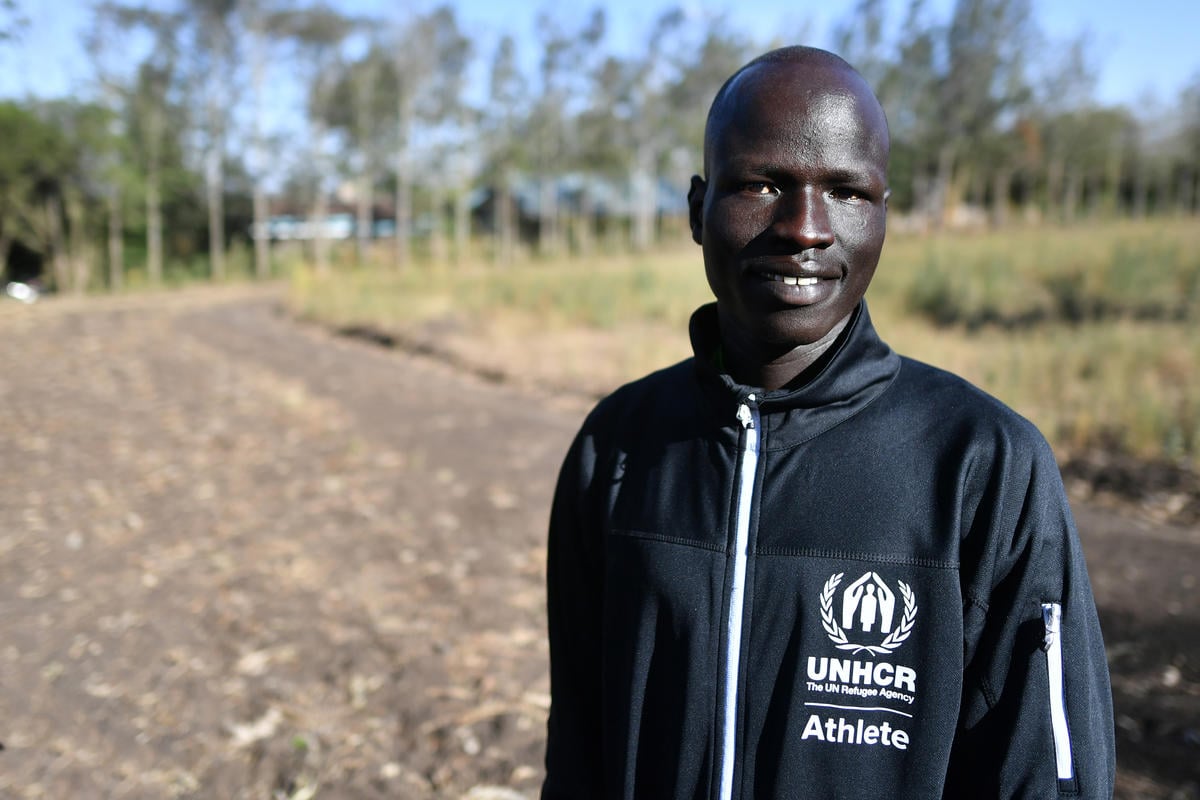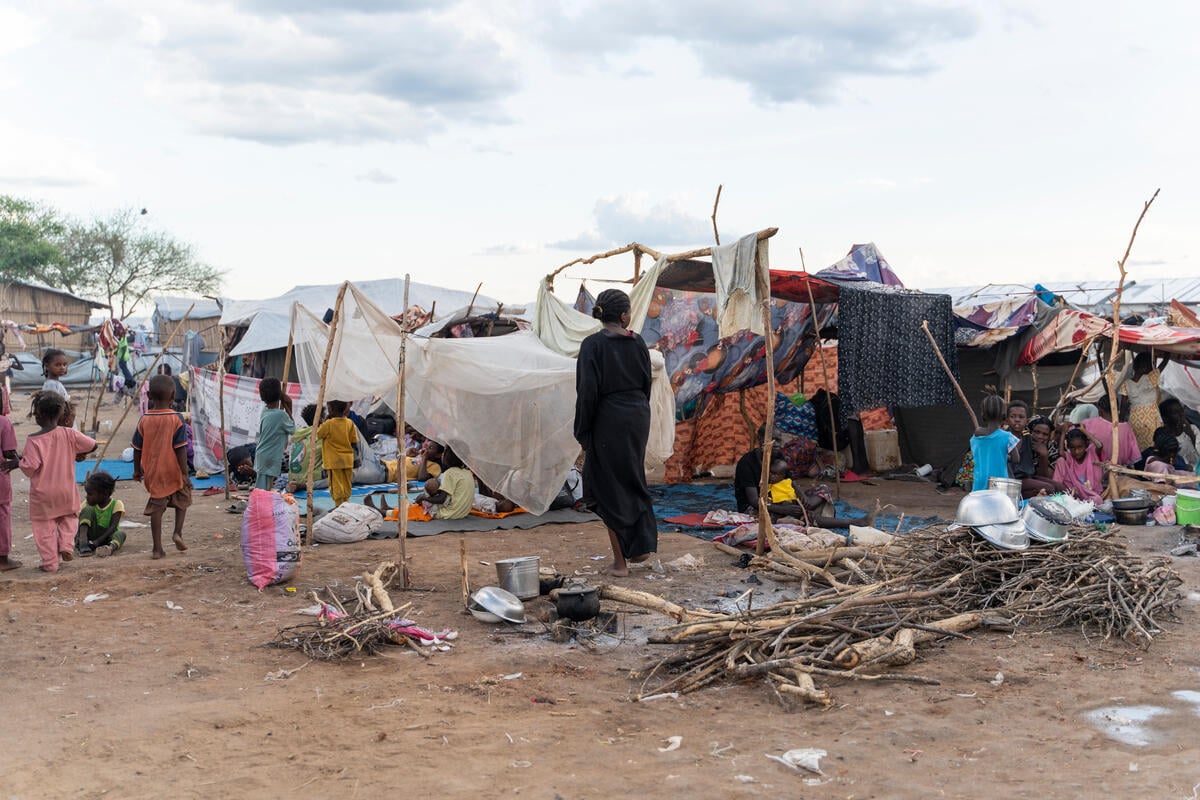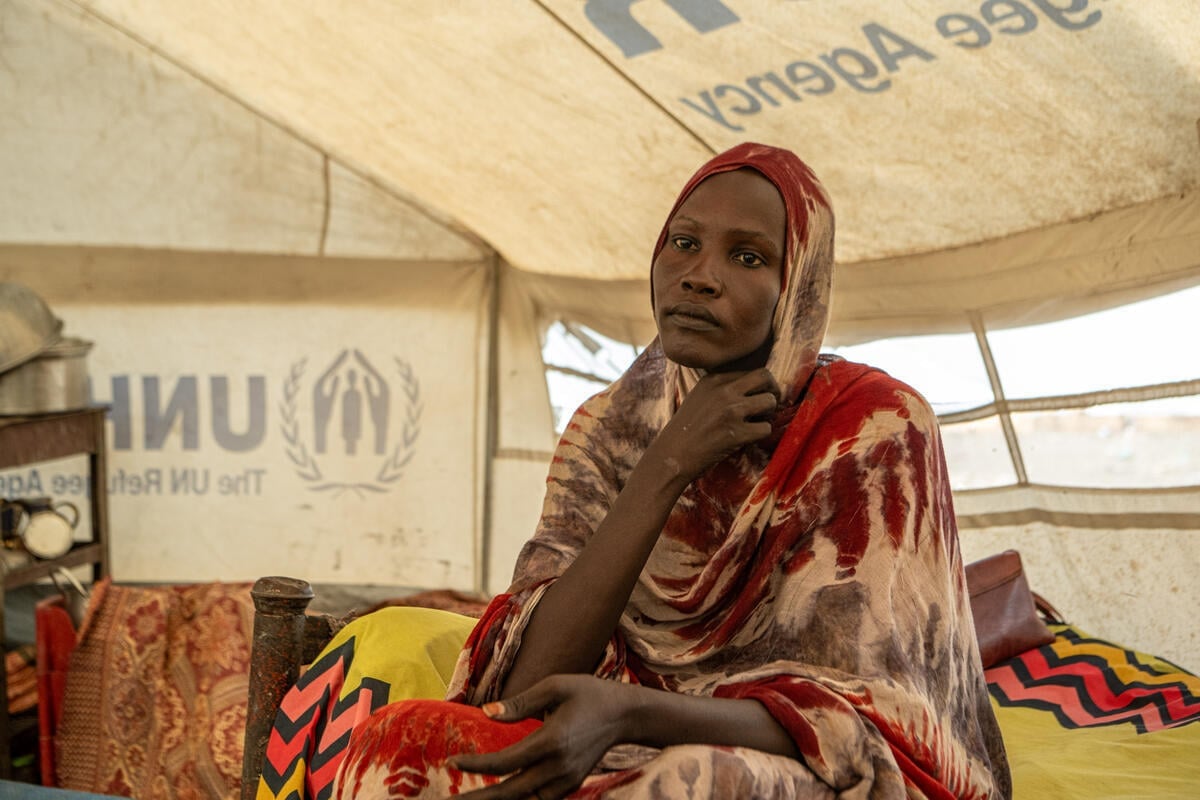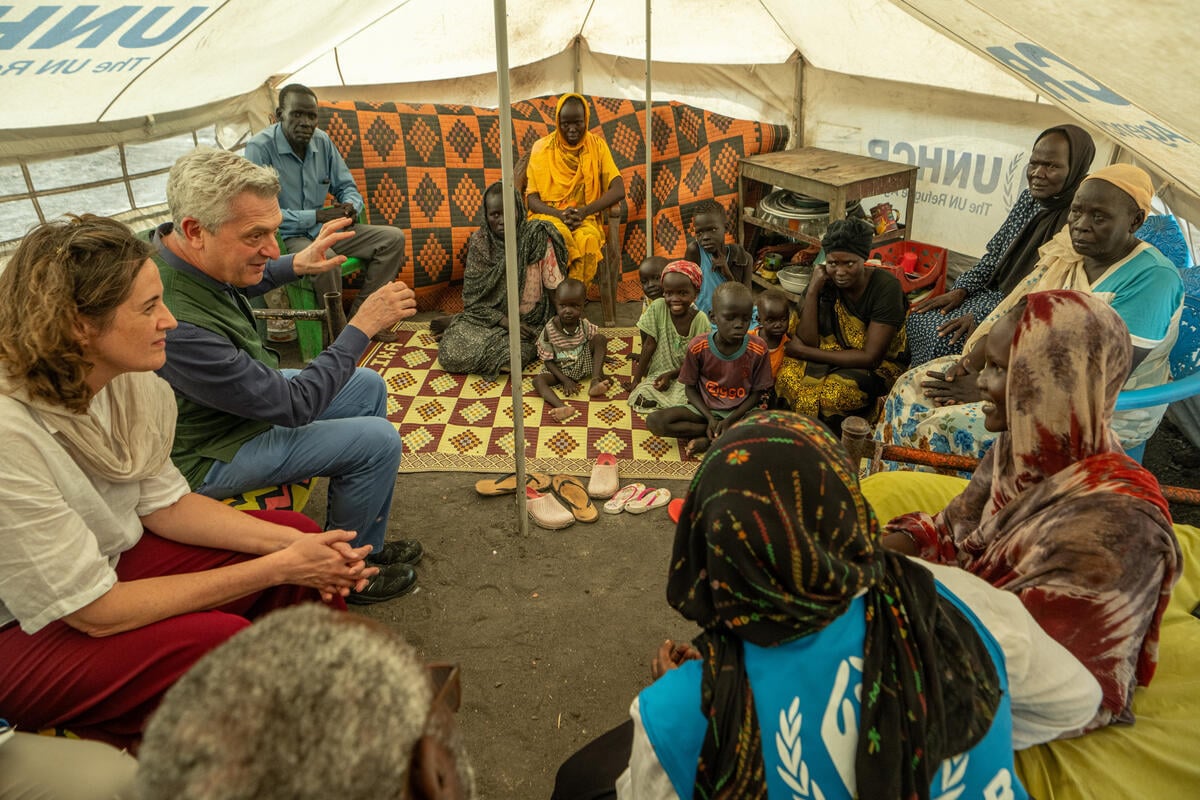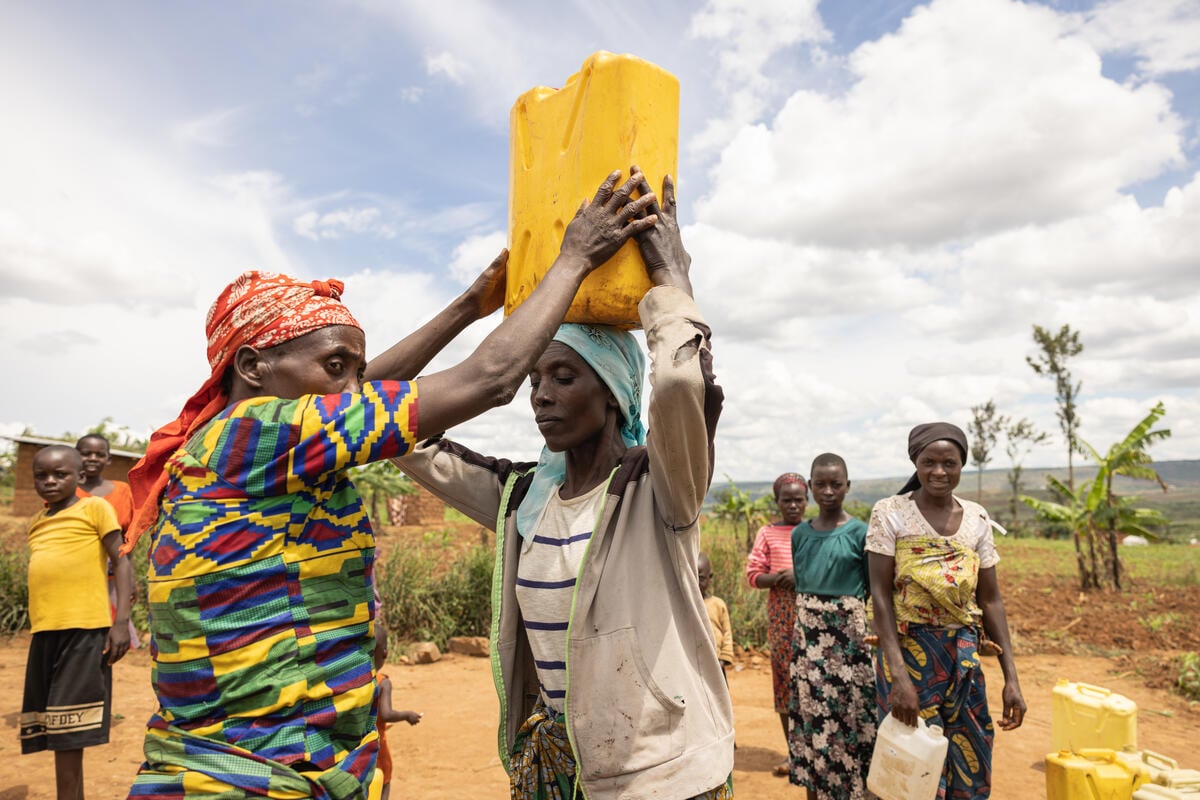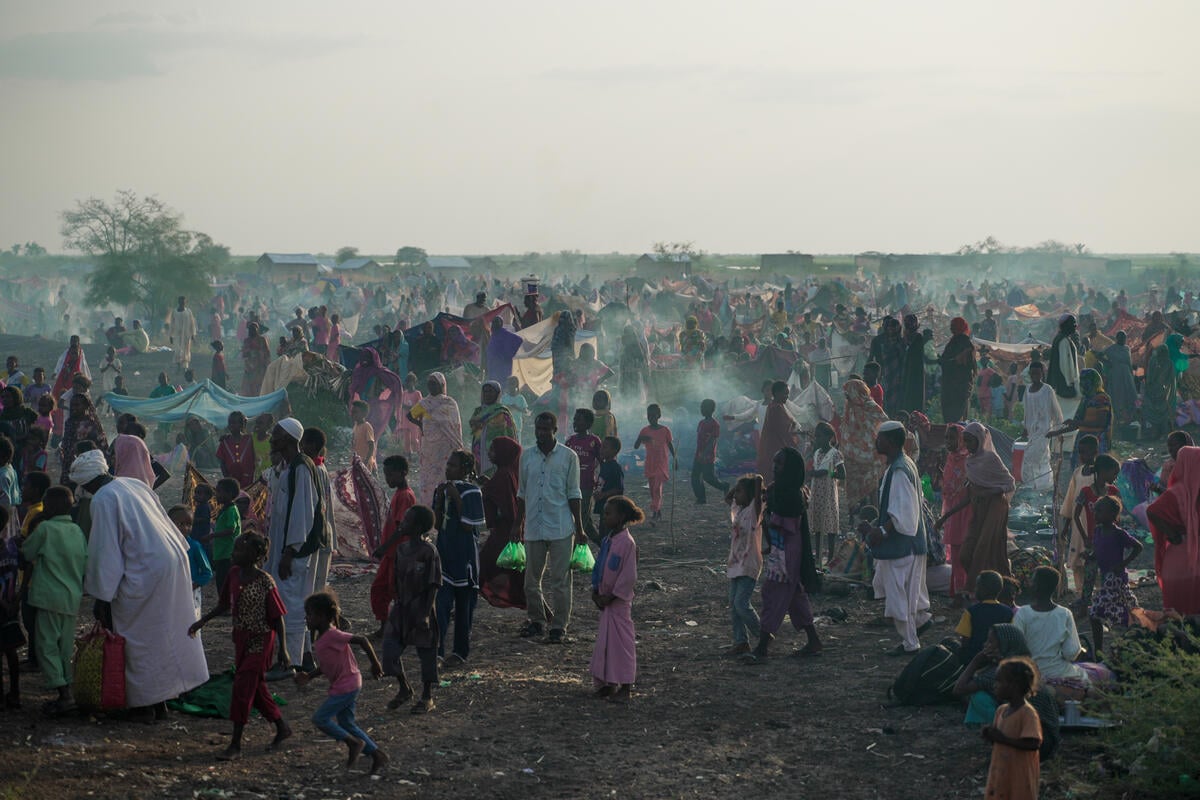UNHCR raises alarm on surge of new arrivals in South Sudan
UNHCR raises alarm on surge of new arrivals in South Sudan
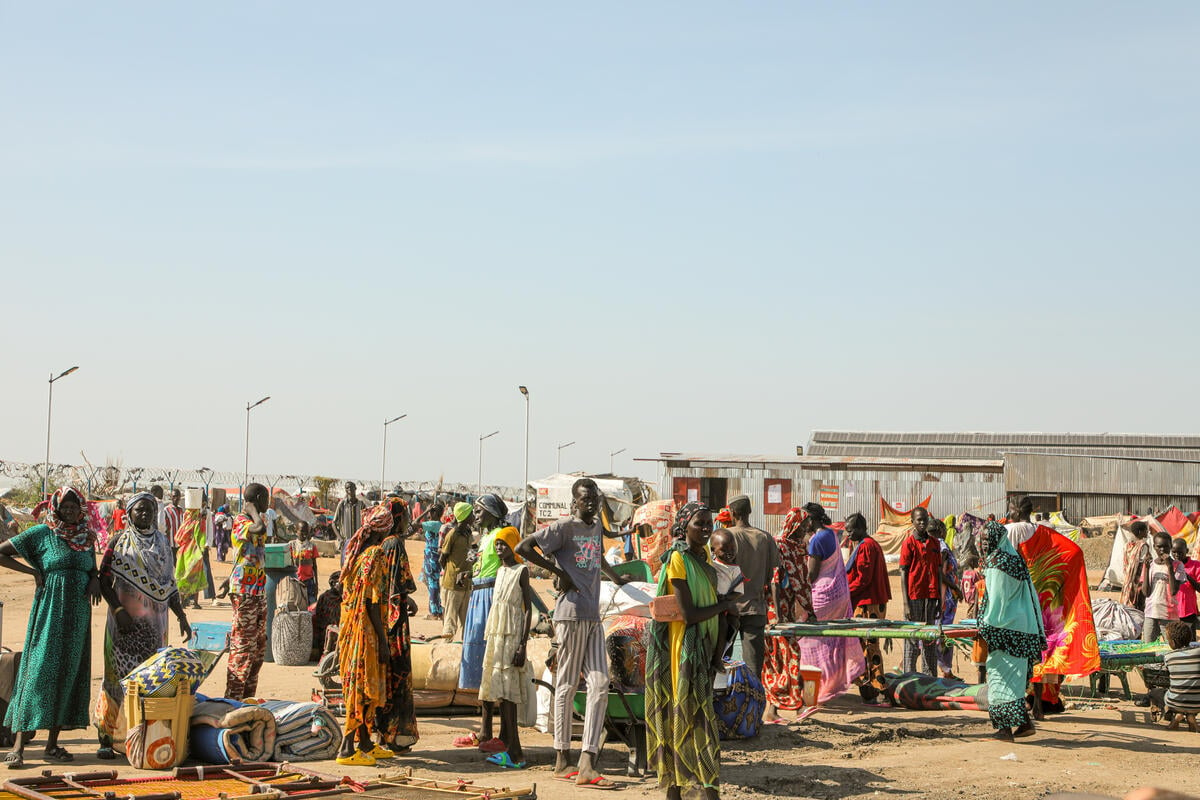
The transit centres in Renk are the main point of arrival in South Sudan for people fleeing the conflict in neighbouring Sudan.
GENEVA – UNHCR, the UN Refugee Agency, is alarmed by the recent surge of people arriving in South Sudan in need of protection and assistance, with tens of thousands of people fleeing fresh violence in border areas of Sudan.
More than 20,000 Sudanese from border villages crossed into South Sudan last week – tripling the number of daily arrivals compared to previous weeks. Since Saturday, there have been an additional estimated 7,000 – 10,000 new arrivals each day, including more South Sudanese refugees leaving the camps in White Nile State where they have been residing in Sudan. The majority of those displaced are women and children, underscoring the impact of the conflict on vulnerable populations.
In addition to the main border crossing at Joda, many are arriving at informal crossing points which are extremely difficult for UNHCR and its partners to access. All are in need of life-saving humanitarian support, with water and health care being the most urgent needs, especially given the ongoing cholera outbreak. The transit centres in Renk are already overcrowded, sheltering nearly 17,000 people – an increase of 4,000 from two weeks ago.
A UNHCR team that visited the border yesterday met thousands of people walking along the 40-kilometre road between the border and the town of Renk in an uninterrupted line. Families had also stopped by the side of the road, with some receiving food and water from local communities. UNHCR and partners are scaling up efforts to support new arrivals and strengthen basic services, but severe underfunding remains a challenge.
Inside Sudan, hostilities around refugee camps and areas hosting displaced Sudanese pose grave and worrying risks to civilians, including refugees and displaced people. The continuation of violence threatens the ability of UNHCR and partners to deliver life-saving protection and assistance to refugees and displaced Sudanese. UNHCR calls for the respect of international humanitarian law and the civilian nature of refugee camps, which must remain safe havens for those fleeing violence, with humanitarian assets and supplies safeguarded.
White Nile State hosts over 400,000 South Sudanese refugees in 10 refugee camps and more than 650,000 displaced Sudanese who have fled conflict in other parts of the country. Since the start of the war in Sudan 20 months ago, this southern State has been a safe haven for those escaping violence in other parts of the country.
Following the escalation of hostilities, many refugees have moved from the three most affected camps, with some heading to South Sudan and others moving across the Nile to the seven camps that remain unaffected. Internally displaced Sudanese have been moving to host community villages near the camps, with over 1,000 families having fled gathering sites in the Al Jabalain locality, moving to Rabak and Kosti towns in White Nile State in search of safety, or further afield to Sennar and South Kordofan States.
Military activity and heightened tension at the Joda border crossing with South Sudan is also deeply concerning. This critical crossing point between Sudan and South Sudan serves as a vital lifeline for civilians fleeing violence and for humanitarian operations in White Nile State. Of the 900,000 people who have crossed into South Sudan since the start of the conflict, more than 700,000 have used this crossing. Keeping it secure and open is essential for those seeking safety and for providing emergency aid to displaced populations on both sides of the border.
Since the war in Sudan began in April 2023, more than 12 million people have been displaced, including over 3 million who have sought refuge in neighbouring countries, making this one of the largest and most pressing displacement crises in the world.
UNHCR remains on the ground in Sudan and neighbouring countries, working with its partners to support millions of people affected by the crisis. We urgently call for an immediate cessation of hostilities to protect civilian lives and ensure the continuation of humanitarian assistance. Financial resources to support refugees leaving Sudan remain scarce, with the Regional Refugee Response Plan only 30 per cent funded as we approach the end of the year.
For more information, please contact:
- For Sudan, Assadullah Nasrullah, [email protected], +254 113 676 413
- In Juba, Gift Friday Noah, [email protected]; +211 922 654 219
- In Nairobi (regional), Faith Kasina, [email protected], +254 113 427 094
- In Geneva, Olga Sarrado, [email protected], +41 797 402 307


